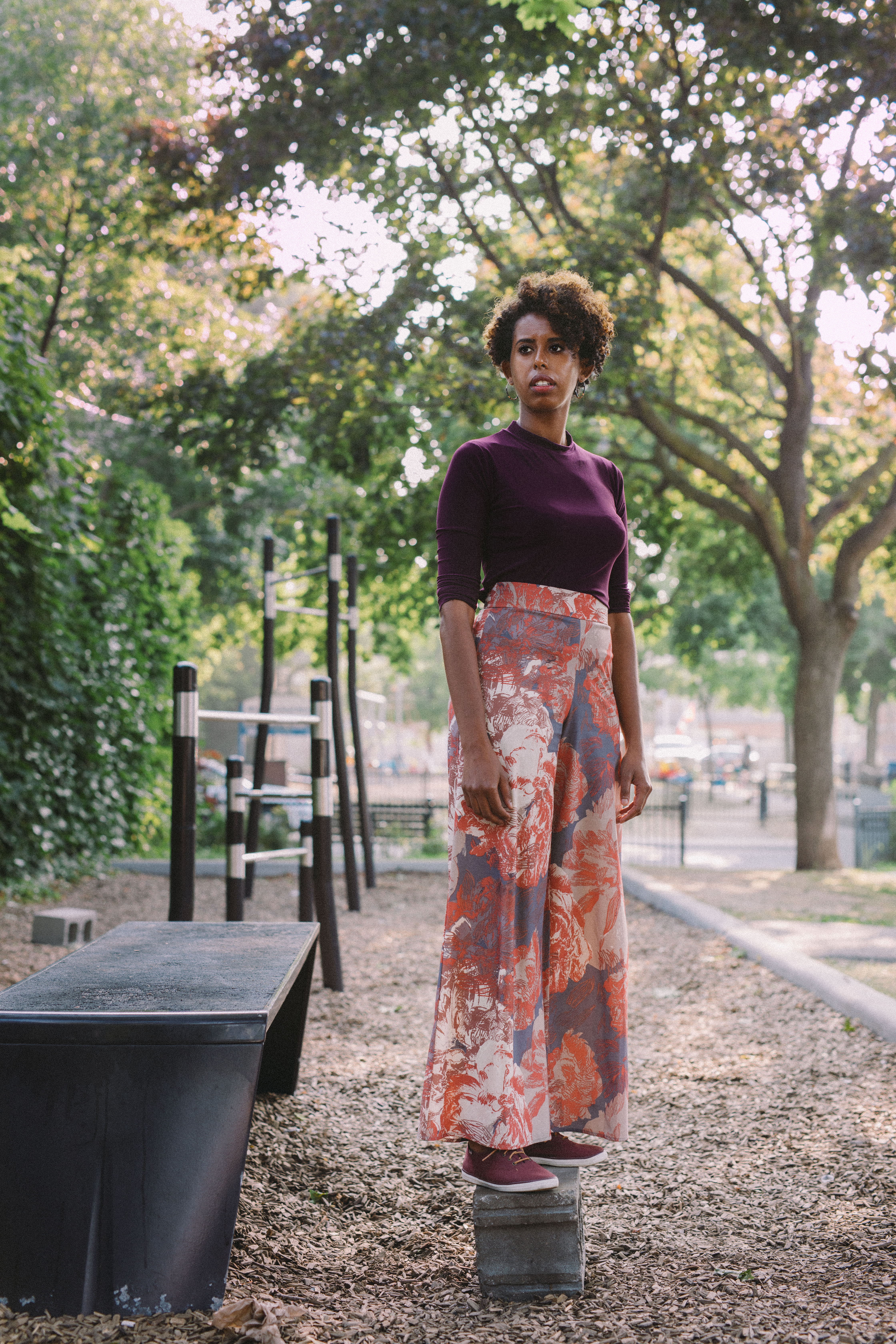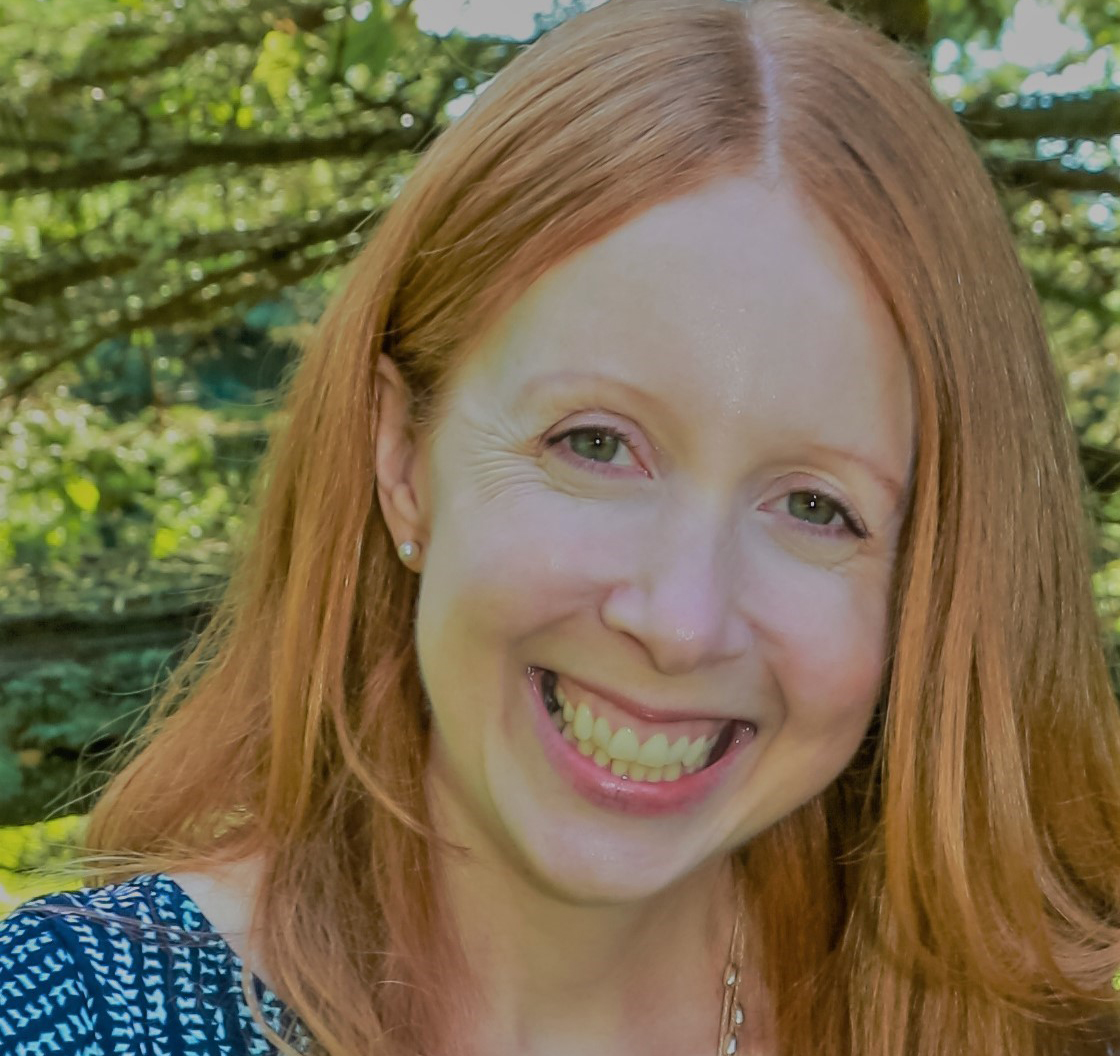The sounds of kids playing in Christie Pits Park on a cloudless July morning grow suddenly quiet every time Arij Elmi yells. She’s in a shady spot near the playground, demonstrating self-defence moves such as the “hammer fist” and “knife hand,” punctuating each strike with a powerful cry. “I found my voice again through teaching self-defence,” says Elmi, a PhD student at U of T’s Ontario Institute for Studies in Education, and a social worker.
She was a feisty kid, a larger-than-life extrovert who always said what she thought. Then, in her preteens, she turned inward, especially when confronted with racist and Islamophobic comments. As a Muslim woman who wore the hijab until recently, Elmi has heard a lot of these in her personal and professional life.
There was the man on the train who helped lift her bag, then asked loudly if it contained a bomb; the client who refused to work with a Muslim social worker; and the stranger who called her “raghead” – just to name a few incidents in a long list. Her experience reflects the alarming rise of police-reported hate crimes against Muslims in Canada in recent years: there was a threefold increase between 2012 and 2016, the most recent year for which statistics are available.
“I was always attracted to the idea of self-defence, but the emotional, not physical, side,” says Elmi, 30, who is researching Islamophobia in the Social Justice Education stream at OISE. “I wanted to speak up when people said ignorant things. Instead, I’d go home and feel terrible.”
Then she discovered Wen-Do, a form of physical and verbal self-defence for women, as a master’s student at the University of Windsor. It not only teaches women techniques to ward off attackers, but helps them feel more confident in all kinds of threatening situations. As Elmi became more immersed in the Wen-Do community and eventually earned her instructor certification, she developed the courage to call people out for racist behaviour. And she wanted to help other women do the same.
Elmi knew from personal experience that many Muslim women, especially those who wore a hijab or niqab, were feeling unsafe in public spaces and wanted a better way to cope than avoiding the subway, for example, or wearing hats. In 2016, with support from crowdfunding, she and fellow instructors held six free Wen-Do workshops for Muslim women and girls in the Greater Toronto Area. Since then, she’s taught all over the city, including at U of T, through the Toronto-based Wen-Do Women’s Self-Defence organization. “In the classes, we challenge the construction of Muslim women as being meek and passive,” says Elmi, adding that she tells women they deserve to know how to protect themselves – just like they want their daughters to know.

Research shows that women who fight back physically or verbally are more likely to stop an assault. Above all, Wen-Do teaches women that it’s OK to be loud, yell, scream and generally forget about being “nice” if they feel threatened. Their voices can either surprise attackers or draw in bystanders. Physical self-defence skills include strikes (such as “eagle’s claw”), releases from holds (“hammer-fist wrist release”) and blocks. Elmi says the participants often express their gratitude to her not only for giving them practical skills, but a venue for open discussion. “There are few opportunities where women, and particularly Muslim women, are able to get together and talk about how sexism, racism, xenophobia and Islamophobia affect our daily lives,” says one student.
It was her women’s studies courses that sparked Elmi’s ongoing passion for empowering women – and led her to Wen-Do. “I felt like I’d finally found my tribe in those classes,” she says. “I was so happy talking about the issues that had been on my mind for as long as I can remember – like gender and socialization, and access to opportunity. They gave me language for things I always knew.”
Sitting in the park with kids racing around behind her, she recalls her eight-year-old self having an epiphany about gender roles. “I had pet bunnies as a kid, and a neighbour would joke, ‘The girl bunny needs to stay in the cage to cook and clean.’ Watching the bunnies I realized that only the male was learning how to run and jump. Right away I knew: girls are limited by their circumstances.”
Today, Elmi takes a feminist, anti-oppressive approach in her practice. She’s been a mental health crisis worker as well as a therapist for children and families. Elmi now works part time at Hard Feelings, a Toronto practice that provides low-cost, short-term mental health services.
Most of us know what coercion feels like and what abuse is. My role is to support women as they assert themselves
“I love frontline counselling, and I see great parallels between it and teaching self-defence,” says Elmi. “In the end, I’m trying to help people get past their emotional blocks. Most of us know what coercion feels like and what abuse is. We don’t need more knowledge. My role is to find out what’s getting in their way, and support them as they assert themselves. Watching women build self-knowledge and self-confidence is beautiful.”
When Elmi recently stopped wearing a hijab for personal reasons – not political ones, she stresses – she worried about the impact of that decision on her efforts to raise awareness about Islamophobia through teaching and media appearances. “I didn’t want to lose legitimacy or disappoint the women I teach,” she says. But the reaction from her students, friends, family and colleagues has been positive. “No one felt let down, and I experienced acceptance across the board,” she says.
This summer Elmi expanded the reach of her Wen-Do teaching by travelling to Dawson City, Yukon, to provide workshops and a course, supported by the Tr’ondëk Hwëch’in government and Dawson Women’s Shelter. She hopes to include more parents and adult survivors of sexual abuse in upcoming classes, and is developing a program that combines elements of emotion-focused therapy with Wen-Do.
Elmi is also testing her voice in an entirely different arena: She took a stand-up comedy class and has already performed a couple of times, saying it’s not as much of a departure from her other roles as it first appears. “I make jokes about Islamophobia and racism and all those things that come from a place of pain. I’m now able to share my stories and say, ‘How absurd is this?’ There’s great catharsis in feeling emotionally connected with the audience and making them laugh.” Not to mention the fact that it’s another way to reconnect with the gutsy little girl she once was – who wasn’t afraid to stand up to anyone.







No Responses to “ Wen-Do Warrior ”
Big fan of outdoor fitness equipment. Can somebody tell me the location of where the photos were taken? Much appreciated!
The photo was taken at Salem Parkette, near Bloor and Dufferin streets, in Toronto.
From Mendelson Joe, Toronto
This article is inspirational. All children should learn self-defence from kindergarten on, up to the end of high school.